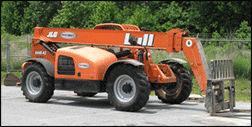
Courtesy BoronExtrication.com
Feel free to contact Ron about any of his hands-on program offerings.
The most requested Hands-On class is the NFPA 1006-compliant Ops-level Advanced Vehicle Rescue program(Ops-level). The follow-up hands-on program is Ron’s NFPA 1006 Technician-level Rescue Challenge (Tech-level) program. Due to its’ advanced skills and knowledge nature, the course and its advanced hands-on skills are intended for experienced rescuers with good tool familiarity and the ability to teach others what they have learned.
Other popular practical skills classes include a Bus Rescue skills training program, a Large Truck rescue techniques program(>10,00GVWR) and a vehicle rescue Train-the-Trainer program.
During a full 16 hour training program, typically the first two to four hours (morning) is presented in a classroom setting with the remaining hours conducted in a location where participants can complete hands-on skills work with acquired vehicles.
When delivered over a weekend, one choice is to schedule an initial classroom session on a Friday night. The classroom session runs Friday evening. Saturday is all day practical, working with the acquired vehicles and the vehicle rescue equipment provided. We begin with some basic tasks and work towards intermediate level assignments later in the day. I demonstrate procedures and explain the safety aspects of various vehicle rescue work in front of the entire group. All participants, organized into small working teams, watch the demonstration and then work together to complete the assignments with the tools and equipment provided to them.
With this schedule, Sunday morning becomes the final four hours of advanced vehicle rescue hands-on training. We conclude with advanced scenarios designed to put all that we have learned into practice. The seminar ends at noon on Sunday.
NFPA 1006, Operations-level, Advanced Vehicle Rescue
OBJECTIVE: Participants receive training in techniques and procedures in advanced vehicle rescue training in conformance with NFPA #1006 and NFPA #1670, Chapter 8, Operations level competencies.
Included within the program is application of rescue training safety protocols, classroom instruction on vehicle new technology and a special look at airbag restraint systems.
Hands-on instructional work focuses on techniques, practices, skills and competencies that meet and exceed NFPA #1670, Chapter 8, Operations-level for vehicle rescue personnel.
Participants are supervised during the training by the Lead Instructor and receive experience participating in, performing, and/or supervising specific advanced vehicle rescue training tasks and assignments. All training assignments are based upon the textbook Vehicle Rescue & Extrication, 2nd edition and the Instructor Resource CD.
NFPA 1006 Technician-level, Rescue Challenge
OBJECTIVE: Participants receive training in techniques and procedures in conformance with NFPA #1006 and NFPA #1670, Chapter 8, Technician level competencies.
Included within this program is application of rescue training safety protocols, classroom instruction and hands-on instructional techniques. Participants are supervised during the training by the Lead Instructor.
Participants enrolled in this special University of Extrication program spend a full day studying real-world incidents and “responding” to realistic extrication scenarios that will challenge even the most experienced rescue personnel. Car-on-car scenarios, vehicle underride, large vehicle rollovers, and more await those selected to participate in this NFPA Technician-level challenge course. Hands-on experience is gained in commanding and controlling vehicle rescue incidents from initial arrival to termination.
 Bus Rescue Skills Training
Bus Rescue Skills Training
This hands-on training program provides skills training on bus vehicles such as a school bus. All vehicle rescue tasks performed on the acquired bus represent tasks that have actually been done at actual bus crashes across the country. Participants are organized into working crews to accomplish tasks that address NFPA 1670, Chapter 8 Technician-level competencies. Assignments include vehicle stabilization, glass removal assignments, jammed door evolutions, creating openings in the sidewall along with roof and floor opening tasks.
 Truck Rescue Skills Training
Truck Rescue Skills Training
Participants in this hands-on training program complete vehicle rescue skills training on an acquired truck vehicle. Because the vehicle being worked on by the participants is a large truck vehicle, all work is designed to address NFPA 1670, Chapter 8 Technician-level competencies. Truck rescue assignments include vehicle stabilization, hazard control, patient access operations, glass removal assignments, jammed door evolutions, creating openings in the sleeper cab and sidewall area along with roof and floor opening tasks. Lifting and cribbing assignments challenge participants to accomplish lifting of heavy loads.
 Special Need: Rescue Challenge Hands-On Class
Special Need: Rescue Challenge Hands-On Class
Host must provide one (1) Heavy machine, typically a SkyTrac-type unit, for any of the hands-on training program courses. This heavy duty machine vehicle will be used to move acquired passenger vehicles into position prior to and after the skills training. The machine should also be capable of moving a large bus vehicle in the Bus Rescue course or a truck or trailer unit during set-up for the Truck Rescue program.
Note: A SkyTrac-type heavy duty machine is a type of vehicle used at construction sites. It has a forklift feature at the end of a large extendable boom. At a construction site, the SkyLift would lift pallet loads of drywall for example up to the upper floors of a 3-story building.
 University of Extrication Ron Moore's University of Extrication is the online home for training tips, news and information pertaining to vehicle extrication and rescue.
University of Extrication Ron Moore's University of Extrication is the online home for training tips, news and information pertaining to vehicle extrication and rescue.